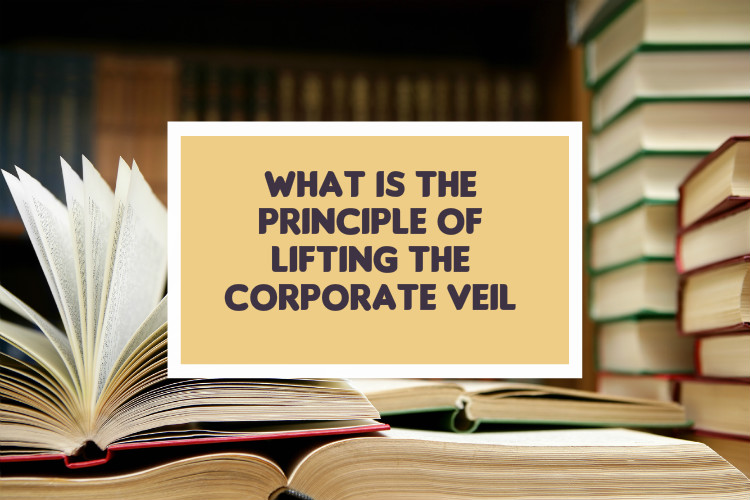What is the principle of Lifting the Corporate Veil ?
Ans. A corporation is, in law, quite distinct and separate from the members who compose it. Its rights and liabilities are different for those of the members. A shareholder of a company can legally enter into a contract with the company as such. Shares holders might be entirely changed, or their number might greatly reduce, but it would make, in no way, any change in the identity of the company. The company might go bankrupt but the shareholders would retain their millions. The real position of a company can be understood only if we make a comparison of it with an unincorporated firm. In an unincorporated firm there is not much difference between the rights and obligations of the firm and its partners. Even the separate property of the partners is liable for the debts of the firm. Change of any one partner causes the reconstitution of the firm. There can be no firm of only one partner, whereas a company may be of only one member. This special position of the company is due to the fact that a company is a juristic person, therefore, it is distinct and separate from its shareholders but the unincorporated firm is not a juristic person, therefore, it does not have the above-mentioned advantages.
Salomon v. Salomon; Farrar v. Farrar.— in short, the essential character of the corporation is that it has a distinct personality from its members. In Solon:on v. Saloman and Co. Ltd., (a leading case on thepoint) the House of Lords refused to identify the company with its shareholder. It was held that the could claim the preferential rights of a bondholder against the company which was in reality he himself, to the detriment of genuine creditors’. Again, in Farrar v. Farrar Ltd., it was held : “A sale by a person to corporation of which he is member is not either in form, or in substance as sale by a person to himself, the idea is that the corporate body is distinct from the persons composing it. A sale by a member of a corporation to the corporation itself is in every sense, valid in equality as well as in law”
The veil can be lifted when it becomes necessary to know the character of a corporate person; or when a corporation has been created to avoid some legal obligation: or when the device of corporate personality is used to perpetuate fraud, as to evade tax; or when it is used to evade a statute or to delay creditors; or when it is necessary to promote justice or to obviate inequitable results.
Daimler Co, v. Continental Tyre Co.—In , the House of Lords lifted the veil of legal personality of a company as all its shareholders.
Convenience and policy is the basis.—It is thus clear that courts have not followed any theory consistently and have proceeded mostly according personality to convenience and on the basis of policy. They have disregarded legal personality in a number of cases, where law had conferred one, and or occasssions they attributed legal personality to groups where it was not so provided by law (statute). In modern times, the law is very lenient in conferring legal personality upon groups, but at the same time, it does not hesitate in lifting the veil if it is necessary in the interest of justice or as a matter of policy.







![Maneka Gandhi v. Union of India [1978] 2 SCR 621: A Watershed Moment in Indian Constitutional Jurisprudence](https://www.infipark.com/articles/wp-content/uploads/2026/02/Image-Feb-18-2026-10_47_59-AM-218x150.jpg)












